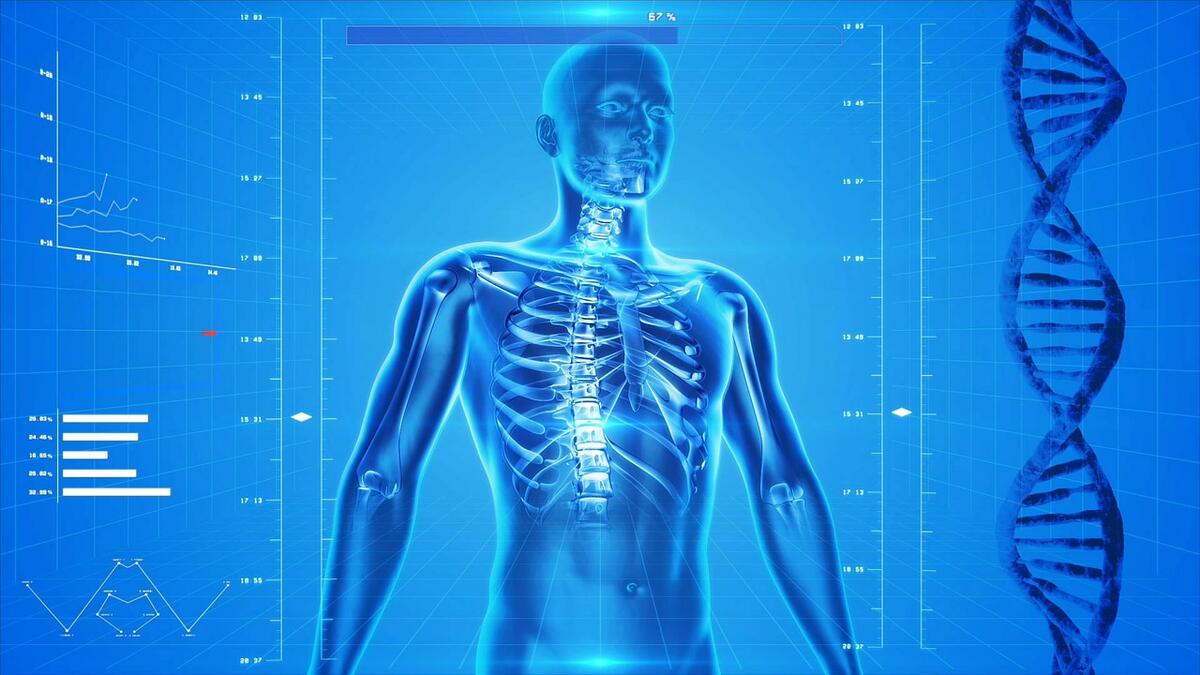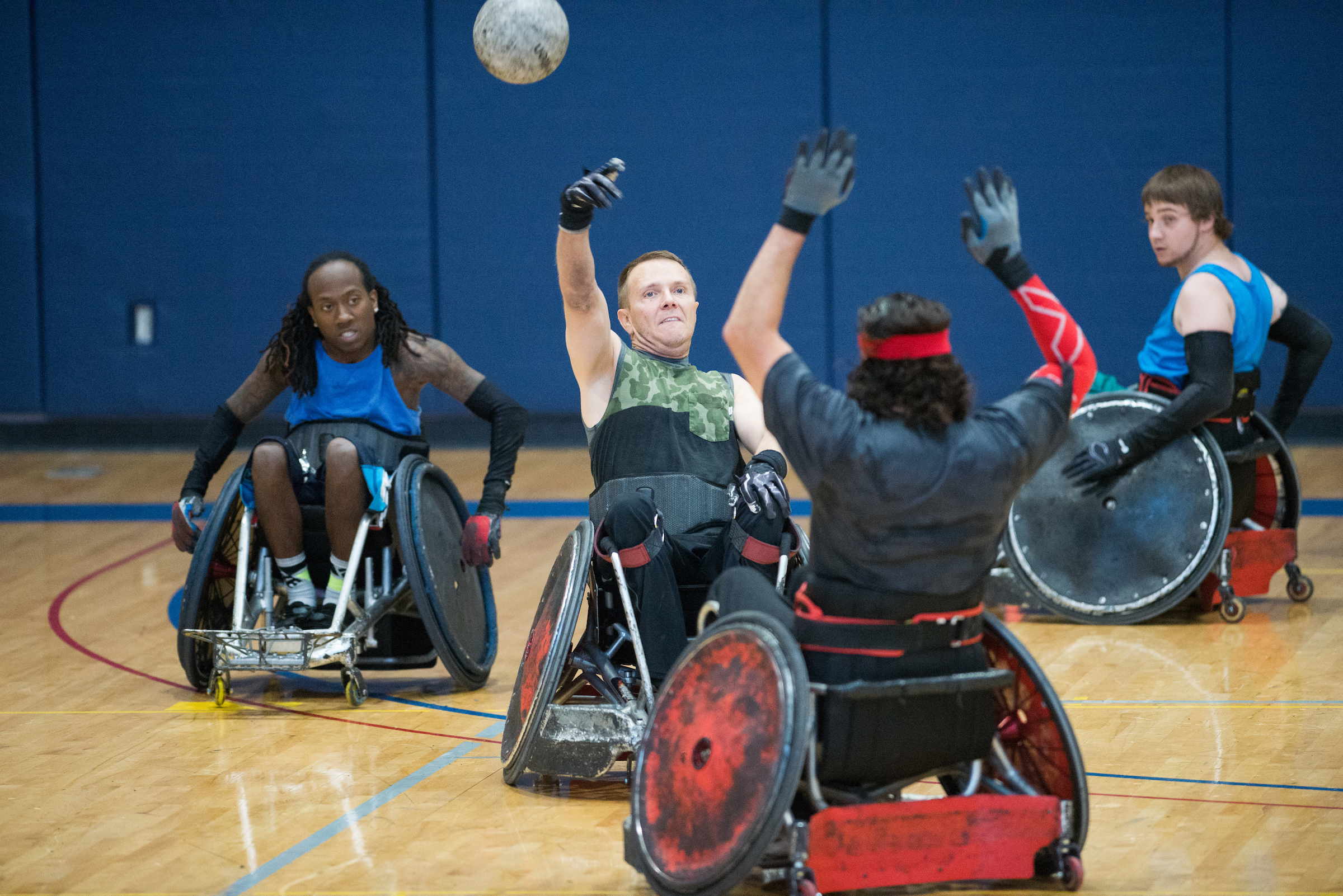Without the human body, sport as we know it would not exist. This year, the Global Sport Institute at Arizona State University has made it its mission to explore that relationship from a variety of angles as diverse as adaptive sport, gender identity and representation, body image, mental health and genetic testing.
At a luncheon on the Tempe campus Aug. 29, Scott Brooks, director of research at the institute, announced the theme of this year as “Sport and the Body.”
Brooks told the crowd he hopes to see the institute expand and collaborate more across disciplines to gain exciting perspectives and fresh insights.
Since its launch in 2017, the Global Sport Institute has also explored the future of sport and sport and race as research themes.
In line with this year’s focus on sport and the body, the institute will be hosting “Sport For Every Body: Celebrating Family Health and Fitness” along with Ability360 from 10 a.m. to 1 p.m., Saturday, Sept. 28, at the Ability360 Sports and Fitness Center at 5031 E. Washington St. in Phoenix.
In recognition of National Family Health and Fitness Day, the free public event will feature tutorials and trials of family-friendly adaptive sports activities — such as Zumba, wheelchair rugby and basketball, and a rock-climbing wall — in addition to talks from professional athletes and information about community resources.
Wheelchair rugby is just one of the activities attendees of “Sport For Every Body: Celebrating Family Health and Fitness” can participate in. The event is co-hosted by ASU's Global Sport Institute and Ability 360. Photo by Ben Moffat/ASU Now
Ability is one of the topics researchers at the Global Sport Institute will be investigating over the next 12 months. At the luncheon in August, Brooks led a panel of researchers in discussing some of the other projects in the works:
Charles Adler, a neurologist at Mayo Clinic, is conducting research on chronic traumatic encephalopathy (CTE). He hopes to find a biomarker for the neurodegenerative disease to aid in diagnosis and treatment options. Currently, CTE only be identified postmortem via autopsy.
Robert Turner, assistant professor of neurology in the Department of Clinical Research and Leadership at the George Washington University School of Medicine and Health Science, is also conducting research related to concussion. Turner is looking at how athletes who have had repeated head trauma age over time, whether there is a link to Alzheimer’s disease, how it affects their sleep and risk and resilience factors.
Siddhartha Angadi, assistant professor at ASU’s College of Health Solutions, is researching how hormone therapy affects the cardiovascular health and performance of transgender athletes. Early findings have shown an increased risk of stroke and heart attack. A documentary about Angadi’s work focusing on the male-to-female transition of Lauren, a runner, is expected to be completed in about a year.
Mary Margaret Fonow, a professor of women and gender studies in ASU’s School of Social Transformation, is researching the labor movement in sport, particularly as it relates to women. She describes sport as a site of both pleasure and pain for women and wants to look at the implications of such issues as pay inequality, sexual assault and homophobia.
Josh Beaumont, a College of Health Solutions graduate student in exercise and nutritional sciences, is currently at work on a three-year research project investigating concussion reporting and the role everyone from teammates to coaches to managers play in that.
Alaina Zanin, an assistant professor at ASU’s Hugh Downs School of Human Communication, is collaborating with Beaumont on the concussion reporting project, focusing on how sports injuries are disclosed and managed in highly bureaucratic organizations. Zanin is also interested in identity as it relates to girls and women in sport, studying the grieving athlete's experience when they can no longer play as a result of injury.
Madelyn Hunter, a College of Health Solutions undergraduate in medical studies, was a student athlete in lacrosse before she tore her ACL and underwent meniscus surgery. Hunter went through the grieving process Zanin is concerned with, feeling the loss of camaraderie and identity that came with her sport. She plans to research best practices for managing the resulting anxiety and depression through diet.
Top photo courtesy Pixabay
More Health and medicine

The rise of NoLo: Many young people opting to reduce alcohol consumption
This month, the U.S. surgeon general released a new advisory on the link between alcohol and cancer risk.The advisory includes a series of recommendations to increase awareness of the link, including…

The surprising role of gut infection in Alzheimer’s disease
Arizona State University and Banner Alzheimer’s Institute researchers, along with their collaborators, have discovered a surprising link between a chronic gut infection caused by a common virus and…

ASU, University of Wisconsin partner to empower Black people to quit smoking
Arizona State University faculty at the College of Health Solutions are teaming up with the University of Wisconsin to determine which treatments work best to empower Black people to quit…

